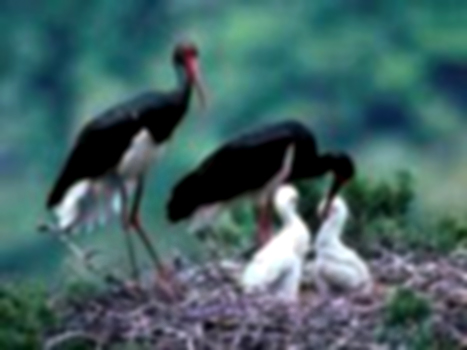Animais de Portugal (1987)
Animals of Portugal
90 min
Realização: · João Ponces de Carvalho
[#1 The White Stork
Possibly because of the legends created around them, all over Europe, Storks are surrounded by a halo of mysticism and are among the most cherished birds, mainly by children.Once numerous on the roofs and trees of Denmark, England, France and Germany, they are now practically extinct in those countries. In Europe, only Poland and Estonia still have a stable number of these birds. In the Iberian Peninsula, the position is not a bright one if we compare the present counts with previous ones. However, in Portugal there are still around 1800 couples, among those that migrate and those that live in the territory all year round.
#2 The Black Stork
The Black Stork is rarer in Portugal than the White Stork and is extinct practically in all of Europe.For this reason, and because of their lesser sociability, these birds are more difficult to watch. They build their nests in areas further away as possible from Man, and in Portugal these areas are located in the regions that border with Spain, on thecliffs of the Tagus and Douro rivers.Black Storks are truly migratory birds. A Black Stork that had been ringed in the internationalTagus river was found in Nigeria, thus proving their transaharian migrations.
#3 The Desert Islands
The desert Islands are part of the Archipelago of Madeira, and are located about 20 miles South of the main Island.They are composed of three main Islands, where one can find a specific flora and a rich Fauna, both on Land and on the sea.In the past, large numbers of monk seals, an extremely rare species, now superprotected by law all over Europe, used to live on those Islands.The Desert Islands must be protected in the future to preserve their declining fauna.
Source: RTC]
Mais informações: Website externo
Direcção de Fotografia: · João Ponces de Carvalho
Direcção de Montagem: · Eulália Ramos
Direcção de Som: · Filipe Gonçalves
Música: · Isabel Monteiro
Produção: · João Ponces de Carvalho
Realização: · João Ponces de Carvalho

[Fonte: RTP]